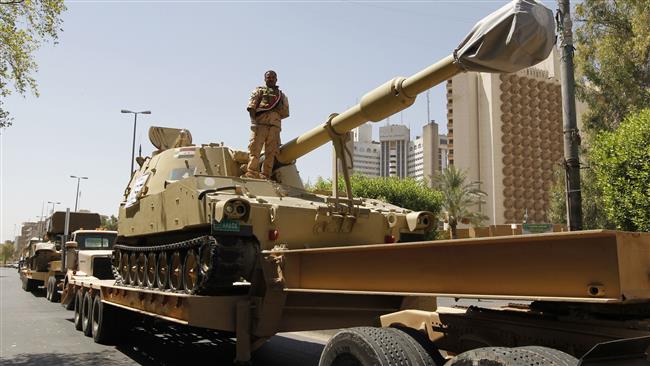Imam Khomeini’s (r.a) was welcomed by Imam Ali (a.s)

I have seen a good dream
Imam’s wife says: About one and a half months before Imam’s surgery which led to his passing away on the 14th of the Iranian month of Khurdad, 1368 (June 3rd, 1989), Imam said to me:
“I have seen a good dream and I will narrate to you, but until I am alive, I do not want you to narrate it to any one. I saw in my dream that I have died and left this world. Imam Ali (as) came and gave me ghusl (cleansing bath) and kafan (wrapping body in a shroud) and prayed for me. Then he placed my corpse in the grave and at that time said: “Now are you comfortable?” I said: “I am comfortable but on my right side there is a lump of earth that is disturbing me.” Imam Ali (as) picked up the lump of earth and rubbed his hand of mercy on that part of my body that was disturbed and at that time, he completely took away the discomfort and I became comfortable.”1
Hajj Ahmad Agha Khomeini (Imam’s son)
Be sure that I am going from this world
In the last days of Imam’s life, I was at the hospital everyday and I always used to ask Hajj Ahmad Agha about Imam’s condition. He used to tell me: “Imam is not well now. Agha sometimes tells me: “Ahmad, be sure that I am going from this world.””2
Hujjatul Islam Tawassuli
Don’t bring Ali to me
The time when Imam began his journey from this world, he wanted us not to bring his grandson Ali to him. We asked the reason why. We realised that because he had let go of all his attachments, and liked Ali very much and this was the only attachment left for him, he wanted us not to bring Ali to him.
This relationship with Allah and cutting off from anything but Him, was present in him from a young age. Extracts of all the characteristics of his youth had gathered in him in his old age.3
Fatema Tabatabai (Imam’s daughter-in-law)
Don’t make him a promise
After Imam’s surgery and at the time when he still had not regained consciousness, Allahu Akbar (God is the greatest) was constantly on his tongue. His entire being had become Allahu Akbar. His inner being was Allahu Akbar. His words, movements, actions and basically every part of him was nothing but the command of Allah.
One day near the end of his life, he asked: “Where is Ali?” I said to him: “Ali also asks about you and says I want to play with Agha and I don’t like it that he is sleeping. But I have told him to be patient, God willing he (Imam) will come in a few days and you can play together like always.”
Imam in his reply said: “There aren’t a few days left, don’t make him a promise.”4
Fatema Tabatabai (Imam’s daughter-in-law)
If it’s for the people, do whatever you want to do
The doctors used to say: “Imam himself wanted to go; every place we fixed, another place in his body became sick.”
Dr. Aarifi had said: “As much as we attacked, the body of Imam counter-attacked.” That day uncle spoke to us and said: “Agha doesn’t have a chance. We must supplicate (to Allah). He only has a 2% chance.”
At night we were at the hospital. Imam’s wife was crying a lot. She said to the doctors: “It’s as if neither our supplications, nor your efforts (are working)!” The doctors said: “We must put a battery (pace-maker) in his heart. They obtained permission from Agha Khamanei and others for this.
The (next) morning, Imam had said to the doctors: “I know I will not remain alive. If you are keeping me alive for myself, leave me be. If it’s for the people, do whatever you want to do.”5
Zahra Ishraqi (Imam’s granddaughter)
Dua-e-Ahad in the last days of life
Imam had a particular habit of reciting Dua-e-Ahad for a period of 40 days, even during his illness. After his passing away, when we transferred his belongings to the house, including his Mafatih, I realised that in the corner of (one of) the pages of the Mafatih, he had written the date of 8th Shawwal (20 days before his passing away) as the date of the beginning of the period of 40 days of reciting this supplication.6
Ali Saqafi
Oh Allah, accept me
In those last Salaat-ul-Layls, Imam used to cry and lament and say: “Oh Allah, accept me.”7
Zahra Ishraqi (Imam’s granddaughter)
The last recommendation of the Imam
At 12 o’clock in the afternoon on the day of his demise, Imam said: “Call the women, I have work with them.” When the women went (to him), he said: “This path is a path of difficulty.” He then said: “Do not sin.”8
Zahra Ishraqi (Imam’s granddaughter)
Thinking of Prayers at its proper time, until the last moments
Imam liked praying at the proper time very much. Even on the last day, in which he passed away at approximately 10 o’clock at night, he was in a state of unconsciousness. One of the doctors went near his head and in order to try to revive Imam by means of prayers, he said: “Agha, it is time for prayers.” At the very moment that he said that, Imam regained consciousness and prayed with movements of his hand.
From the morning of that day, he regularly asked us: “How much time is left till Dhuhr?” Because he himself didn’t have a watch on his hand and he didn’t have the energy to look at the clock, he asked us the time every 15 minutes. Not so that his prayers does not become delayed, but so that he would pray at the proper time.9
Na’ime Ishraqi (Imam’s granddaughter)
He went from this world while reciting dhikr
Imam was constantly in a state of dhikr. Even in one of the instances when he regained consciousness, his lips were moving. When the doctor brought his ear close, he heard that Imam was reciting Allahu Akbar. He went from this world in this very state of reciting dhikr.10
Hujjatul Islam Tawassuli
1. Dastaan Dustaan, Vol 5, Pg. 249
2. Bardashthayi az Seereye Imam Khomeini, Vol 1, Pg. 305
3. Bardashthayi az Seereye Imam Khomeini, Vol 1, Pg. 319
4. Paa be Paaye Aaftaab, Vol 1, Pg. 192
5. Bardashthayi az Seereye Imam Khomeini, Vol 1, Pg. 318
6. Bardashthayi az Seereye Imam Khomeini, Vol 1, Pg. 336
7. Bardashthayi az Seereye Imam Khomeini, Vol 1, Pg. 316
8. Bardashthayi az Seereye Imam Khomeini, Vol 1, Pg. 325
9. Bardashthayi az Seereye Imam Khomeini, Vol 1, Pg. 333
10. Bardashthayi az Seereye Imam Khomeini, Vol 1, Pg. 320




